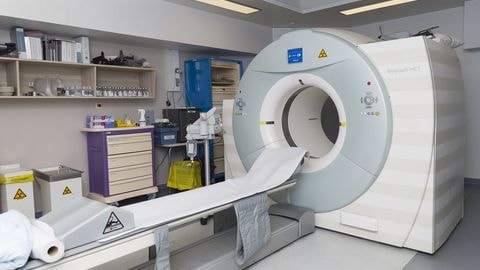Artificial intelligence diagnoses Alzheimer's better than doctors
In many cases, this artificial intelligence system makes better diagnoses than traditional methods.
While Alzheimer's disease affects tens of millions of people worldwide, it remains difficult to detect early. But researchers say artificial intelligence (AI) could play a key role in detecting Alzheimer's disease in patients early.
Researchers in California have just published a study in the journal Radiology on this technology. When trained with deep learning (machine learning), a computer system was able to accurately diagnose Alzheimer's disease in a small number of patients who had previously been diagnosed by doctors with no findings.
|
| Photo: AI is applied in diagnosing Alzheimer's disease |
The team used 2,109 brain images (FDG-PET scans) from 1,002 patients (which are used to diagnose Alzheimer’s disease) to “train” a computer system to detect signs of Alzheimer’s. They then tested it on a separate set of images from 40 patients archived between 2006 and 2016 to compare the results of the artificial intelligence with the doctors.
The results showed that AI can accurately diagnose Alzheimer’s patients much earlier than doctors (in some cases up to six years earlier). However, with their experience, doctors often have more accurate assessments. For example, patients only show signs of mild cognitive impairment but do not develop Alzheimer’s.
That's also a note about the limitations of AI. According to the researchers, the training data for this system is still very limited. They still have a lot of work to do, including improving the analysis algorithm as well as working on more data on Alzheimer's patients.
But it shows that AI could be a useful tool for doctors and specialists in the future. In particular, AI could help diagnose Alzheimer's disease much earlier than traditional methods.
"If we can detect the disease earlier, it gives us a chance to come up with better measures to slow down or even stop the progression of Alzheimer's," Jae Ho Sohn, a researcher on the project, said in a statement.

